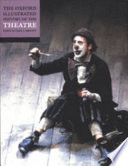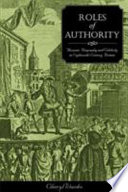 | Sarah Stanton, Martin Banham - 1996 - 436 pages
...opening of Garrick's management of DRURY LANE in 1747, formulating his managerial policy in the couplet "The Drama's laws the Drama's patrons give,/ For we that live to please must please to live.' His only play, Irene, was produced by Garrick in 1749. A sterile tragedy, it survived for nine nights... | |
 | Robert Andrews - 1997 - 666 pages
...tragedies are finished by a death, All comedies are ended by a marriage. GEORGE GORDON NOEL BYRON, ÖTH 3 The drama's laws, the drama's patrons give, For we that live to please, must please to live. SAMUEL JOHNSON, (1709-1784) British author, lexicographer. "Prologue at the Opening of the Theatre... | |
 | Greg Clingham - 1997 - 290 pages
...responsible: Ah! let not Censure term our Fate our Choice, The Stage but echoes back the publick Voice. The Drama's Laws the Drama's Patrons give. For we that live to please, must please to live. (51-54) Johnson's symbolic transfer of the audience to the stage allows him unthreatening incrimination... | |
 | Kevin Sharpe, Steven N. Zwicker - 1998 - 404 pages
...Johnson wrote: Ah! let not Censure term our Fate our choice The Stage, but echoes back the publick Voice. The Drama's Laws the Drama's Patrons give For we that live to please, must please to live. Quoted in James J. Lynch, Box Pit and Gallery: Stage and Society in Johnson's London (Berkeley: University... | |
 | Murray Frame - 2000 - 228 pages
...theaters were ill-advised to overlook the wishes of the audience. As Samuel Johnson put it in 1765, "The Drama's laws the Drama's patrons give / For we that live to please must please to live." Ultimately, as a consequence of Dr. Johnson's dictum, serious financial problems did not emanate from... | |
 | James Van Horn Melton - 2001 - 302 pages
...his public: Ah! let not Censure term our Fate our Choice, The Stage but echoes back the public Voice, The Drama's Laws the Drama's Patrons give, For we that Live to please, must please to live. Samuel Johnson's epilogue to Oliver Goldsmith's "Good-Natured Man" (1768) compared the relationship... | |
 | John Russell Brown - 2001 - 598 pages
...company. Ah! let not censure term our fate our choice, The stage but echoes back the public voice. I he drama's laws the drama's patrons give, For we that live to please, must please to live . . . 'Tis yours this night to bid the reign commence Of rescued nature and reviving sense; To chase... | |
 | Cheryl Wanko - 2003 - 286 pages
...patronage to a market-driven system. Johnson's famous rueful lines from his Drury Lane prologue (1747)— "The drama's laws the drama's patrons give, / For we that live to please must please to live" — acknowledge this dependence on public opinion, although such reminders were commonplace in prologues... | |
 | John Richetti - 2005 - 974 pages
...opening of Drury Lane in September 1747 at the start of Garrick's twenty-nine years of management: The drama's laws, the drama's patrons give, For we that live to please, must please to live.34 If the audience wanted pantomime, farce, musicals and technical razzledazzle - and they did... | |
 | Paul Whitfield White, Suzanne R. Westfall - 2006 - 340 pages
...paramount importance. CHAPTER II The aadience as paIron: The Knight of the Burning Pestle Alexander Leggatt The Drama's Laws the Drama's Patrons give, For we that live to please, must please to live. Samuel Johnson, "Prologue at the Opening of the Theatre in Drnry-Lane i747" Halfway through the fifteenth-century... | |
| |